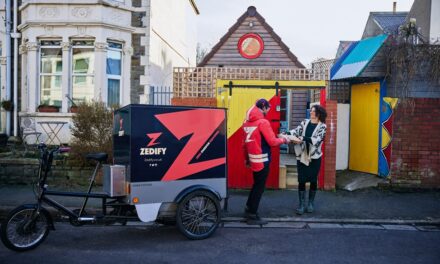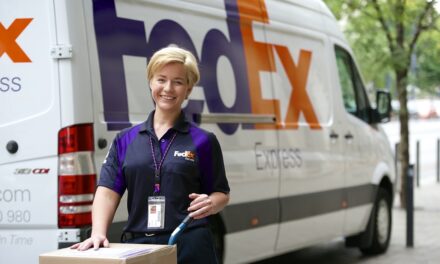
FedEx's wheels firmly on the ground in trucking Andrew Ward on how the delivery group's strategy to expand into the lighter truckload segment is paying off
FedEx is best known for its fleet of nearly 700 aircraft, shuttling parcels across oceans and continents.
Over recent years, however, the US group's fastest growth has come at a much lower altitude.
FedEx is building an increasingly powerful presence in the US road freight market, expanding its delivery capabilities beyond parcels into a broader range of cargo.
Revenues from FedEx Freight, its trucking division, rose 20 per cent in the 2006 fiscal year, which ended in May, and accounted for more than 11 per cent of the group's Dollars 32bn total.
Investors are hoping to see the positive trend continue today when FedEx reports first-quarter results.
This month, the group completed the Dollars 780m acquisition of Watkins Motor Lines, a large US truck company, further strengthening its presence in the sector. With more than Dollars 1bn of annual revenues, Watkins will increase the scale of FedEx Freight by about a third.
The deal came a year after UPS, FedEx's biggest competitor, entered the road freight market through the Dollars 1.3bn acquisition of Overnite Corporation.
Both FedEx and UPS are focused on the Less-than-Truckload (LTL) segment, which handles lighter loads than the heavy truckload carriers.
FedEx wanted Watkins because it specialises in long haul, nationwide deliveries that differ from the group's existing short haul, regional services.
"Our network is geared towards one and two day deliveries," says Doug Duncan, chief executive, of FedEx Freight, in an interview. "Customers were saying, 'that's great, but we also need a five or six day service for when cost is more important than speed'."
FedEx is rebranding Watkins as FedEx National LTL and plans to run the network separately from its regional LTL business.
Analysts will closely examine today's results for any signs that the slowing US economy is putting pressure on freight volumes.
But, while the LTL sector is closely correlated with industrial production, Mr Duncan says half of FedEx Freight's growth in the fourth quarter came from market share gains, reducing its exposure to macro-economic factors.
FedEx is winning business from smaller competitors as the fragmented LTL sector consolidates. Mr Duncan says more acquisitions are possible but not crucial. "We've got all the bases covered now. If an opportunity arose to fit another company into our existing network we would consider it but we do not need more acquisitions. The priority is to maximise growth from the assets we have."
The expansion into trucking is part of a broader trend towards diversification by package delivery groups. By offering a wider range of freight and logistics services, FedEx and its rivals are competing for a bigger share of their customers' supply chain spending.
Both FedEx and UPS are marketing their parcel and freight services in a bundled package for larger customers. But while FedEx has ventured furthest into trucking, the group has been more cautious in other areas. UPS and Deutsche Post, owner of DHL, have made a series of acquisitions involving ocean and air freight and logistics. FedEx, in contrast, has made only tentative advances into those sectors, preferring to remain more narrowly focused on its higher-margin package and light road freight businesses.
UPS and Deutsche Post believe that as global supply chains grow more complex and lengthy, customers are looking for logistics partners with the broadest range of capabilities.
But investor confidence in their model has been dented by the sluggish performance of UPS's supply chain services division and by the slow pace of integration between Deutsche Post's logistics, freight and parcel operations.
"While the potential to bundle these services is there, it has not been the wonderful strategy they hoped for," said Fred Smith, FedEx's chief executive, in an interview this year.
Mr Smith acknowledged that customers were putting pressure on FedEx to expand its portfolio – particularly into trans-pacific freight forwarding – but he said that the group would not be pressured into making bad acquisitions.













